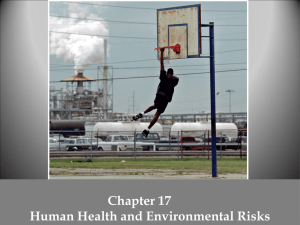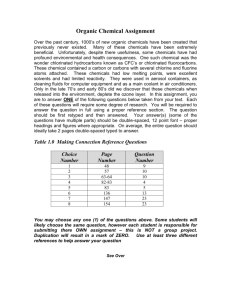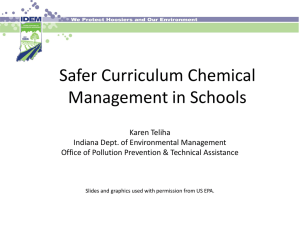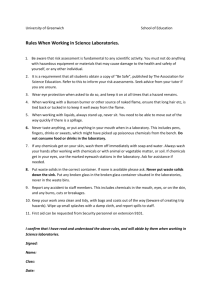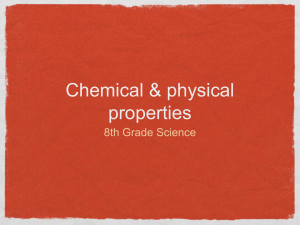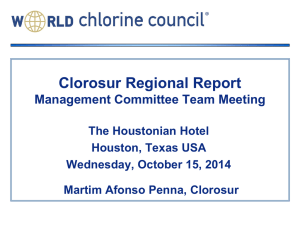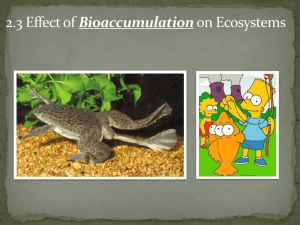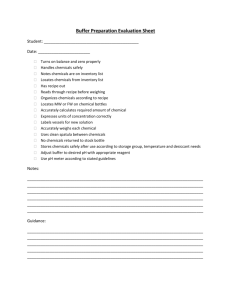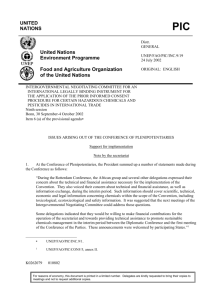Decision_on_Chemicals_and_Waste
advertisement
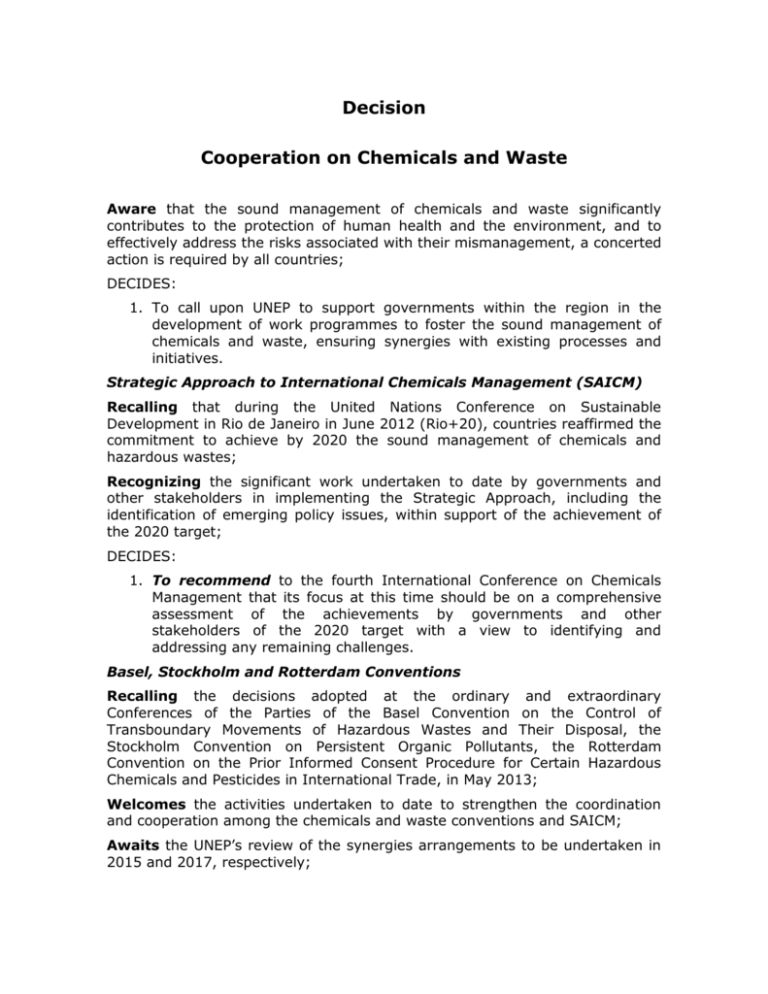
Decision Cooperation on Chemicals and Waste Aware that the sound management of chemicals and waste significantly contributes to the protection of human health and the environment, and to effectively address the risks associated with their mismanagement, a concerted action is required by all countries; DECIDES: 1. To call upon UNEP to support governments within the region in the development of work programmes to foster the sound management of chemicals and waste, ensuring synergies with existing processes and initiatives. Strategic Approach to International Chemicals Management (SAICM) Recalling that during the United Nations Conference on Sustainable Development in Rio de Janeiro in June 2012 (Rio+20), countries reaffirmed the commitment to achieve by 2020 the sound management of chemicals and hazardous wastes; Recognizing the significant work undertaken to date by governments and other stakeholders in implementing the Strategic Approach, including the identification of emerging policy issues, within support of the achievement of the 2020 target; DECIDES: 1. To recommend to the fourth International Conference on Chemicals Management that its focus at this time should be on a comprehensive assessment of the achievements by governments and other stakeholders of the 2020 target with a view to identifying and addressing any remaining challenges. Basel, Stockholm and Rotterdam Conventions Recalling the decisions adopted at the ordinary and extraordinary Conferences of the Parties of the Basel Convention on the Control of Transboundary Movements of Hazardous Wastes and Their Disposal, the Stockholm Convention on Persistent Organic Pollutants, the Rotterdam Convention on the Prior Informed Consent Procedure for Certain Hazardous Chemicals and Pesticides in International Trade, in May 2013; Welcomes the activities undertaken to date to strengthen the coordination and cooperation among the chemicals and waste conventions and SAICM; Awaits the UNEP’s review of the synergies arrangements to be undertaken in 2015 and 2017, respectively; Reaffirms the need to increase the technical capacity of the countries of the region, and acknowledging the work developed by the regional centres of the Basel and Stockholm Conventions, as well as the support provided by their hosting countries; Continues to emphasize the importance of the implementation of the coordination and cooperation activities at the national and regional levels and calls upon UNEP to increase its support to LAC countries; DECIDES: 1. To strengthen, in collaboration with the international organizations and other relevant stakeholders, the financial and technical capacity of the Basel and Stockholm Regional Centres Network in Latin America and the Caribbean to facilitate the effective delivery of capacity building, technical assistance and technology transfer to support implementation of the chemicals and waste conventions, and where appropriate the Minamata Convention on Mercury. 2. To urge countries of the region to increase their efforts and collaborate in the prevention and control of illegal traffic of hazardous waste and chemicals. Minamata Convention on Mercury Welcoming the recent approval and adoption of the Minamata Convention on Mercury, and stressing that countries of the region played a key role in the negotiation and adoption of the text of the Convention, as well as in the design of other instruments of the international agenda on chemicals and waste; Considering that some countries in the region have inventories and preliminary assessments on mercury and have initiated the development of legal, institutional and technical capacity to effectively implement the Convention once it has entered into force, which can serve as a reference for other countries; DECIDES: 1. To invite countries in the region to take necessary steps to ratify, accept, approve or accede to the Minamata Convention on Mercury to become a Party, thus contributing to its early entry into force. 2. To cooperate with other governments and stakeholders in, inter alia, the: a. Preparation of inventories and preliminary assessments to identify those sectors for which actions will be needed in accordance with the Convention; b. Institutional development for the implementation of the Convention; c. The development of regional and national strategies and action plans to reduce and, where feasible eliminate, the use of mercury in artisanal and small scale gold mining; d. Information exchange on best available techniques and practices to reduce mercury emissions and releases, and the sound storage and management of mercury wastes. e. Measurement of mercury pollution on water, soil and air, and the impact on the environment. f. Strengthening of countries’ capacities within the region to address contaminated sites. 3. To call upon UNEP to support governments of the region in the development of a regional clearinghouse to support enabling activities related to the Convention on Mercury and report on steps taken at the next Meeting of the LAC Forum of the Ministers of the Environment. Implementation activities Reiterates the importance of mobilizing the necessary financial resources to strengthen global, regional and national efforts, in order to comply with international instruments related to chemicals and waste; Welcomes the Country-led, and UNEP supported initiatives to address implementation of the international chemicals and waste agenda; Stresses that the outcomes of these initiatives must support the effective implementation of the chemicals and waste conventions and SAICM by developing countries at the national and regional levels. DECIDES: 1. To request the Chair of the 19th Meeting of the LAC Forum of Ministers of Environment to formally communicate to the GEF Assembly and the UNEA the region’s concern that the 6th replenishment of the GEF fully takes into account the need to allocate sufficient financial resources dedicated to the implementation of the chemicals and waste conventions and SAICM.

